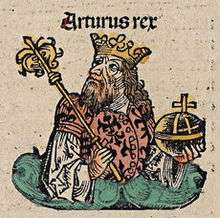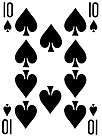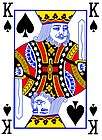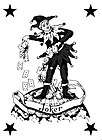rei
English
Alternative forms
Etymology
Incorrect back-formation of Portuguese plural reis. The correct singular is real.
Related terms
- real
- millrei
Part or all of this entry has been imported from the 1913 edition of Webster’s Dictionary, which is now free of copyright and hence in the public domain. The imported definitions may be significantly out of date, and any more recent senses may be completely missing.
(See the entry for rei in Webster’s Revised Unabridged Dictionary, G. & C. Merriam, 1913.)
Catalan
Etymology
From Old Catalan rei, reig, from Latin rēgem, accusative of rēx, from Proto-Indo-European *h₃rḗǵs (“rules”).
Related terms
Dutch
Etymology
From Middle Dutch rei. Cognate to German Reigen. This etymology is incomplete. You can help Wiktionary by elaborating on the origins of this term.
Pronunciation
- IPA(key): /rɛi̯/
Audio (file) - Hyphenation: rei
- Rhymes: -ɛi̯
Galician
Etymology
From Old Portuguese rei, from Latin rēgem, accusative singular of rēx (“king”), from Proto-Indo-European *h₃rḗǵs (“rules”).
Related terms
Kabuverdianu
Latin
Luxembourgish
Norwegian Nynorsk
Old French
Noun
rei m (oblique plural reis, nominative singular reis, nominative plural rei)
- (Anglo-Norman) Alternative form of roi
- 13th century, Herman de Valenciennes, Assomption Nostre Dame, page 6, column 2, line 26:
- li trei rei t'aourent d'estrange regiun
- the three kings from a strange land worshipped you
-
Old Occitan
Alternative forms
Etymology
From Latin rēx, rēgem
Noun
rei m (oblique plural reis, nominative singular reis, nominative plural rei)
- king (male monarch)
Coordinate terms
- reina (“queen”)
Old Portuguese
Etymology
From Latin rēgem, accusative singular of rēx (“king”), from Proto-Indo-European *h₃rḗǵs (“rules”).
Pronunciation
- IPA(key): /rej/
Noun
rei m (plural reis, feminine reỹa, feminine plural reỹas)
- king (male ruler of a kingdom)
- 13th century, attributed to Alfonso X of Castile, Cantigas de Santa Maria, E codex, cantiga 221 (facsimile):
- Como ſanta maria guareceu en Onna al Rei don fernando quand era menỹo dũa grand enfermidade q̇ auia.
- How Holy Mary cured King Ferdinand in Oña of a great sickness that he had when he was a child.
- Como ſanta maria guareceu en Onna al Rei don fernando quand era menỹo dũa grand enfermidade q̇ auia.
- 13th century, attributed to Alfonso X of Castile, Cantigas de Santa Maria, E codex, cantiga 221 (facsimile):
Related terms
Descendants
Polish
Portuguese

Alternative forms
- rey (obsolete)
Etymology
From Old Portuguese rei, from Latin rēgem, accusative singular of rēx (“king”), from Proto-Indo-European *h₃rḗǵs (“rules”).
Noun
rei m (plural reis, feminine rainha, feminine plural rainhas)
- king (monarch)
- (chess, card games) king
Usage notes
In archaic usage, the definite form (“the king”) may be expressed as el-rei instead of o rei.
Quotations
For quotations of use of this term, see Citations:rei.
Descendants
See also
| Chess pieces in Portuguese · peças de xadrez (layout · text) | |||||
|---|---|---|---|---|---|
| rei | rainha, dama | torre | bispo | cavalo | peão |
| Playing cards in Portuguese · cartas de baralho (layout · text) | ||||||
|---|---|---|---|---|---|---|
| ás | dois, duque | três, terno | quatro, quadra | cinco, quina | seis, sena | sete, manilha |
 |
 |
 |
 |
 |
 |
 |
| oito | nove | dez | valete | dama | rei | jóquer, joker, coringa, curinga |